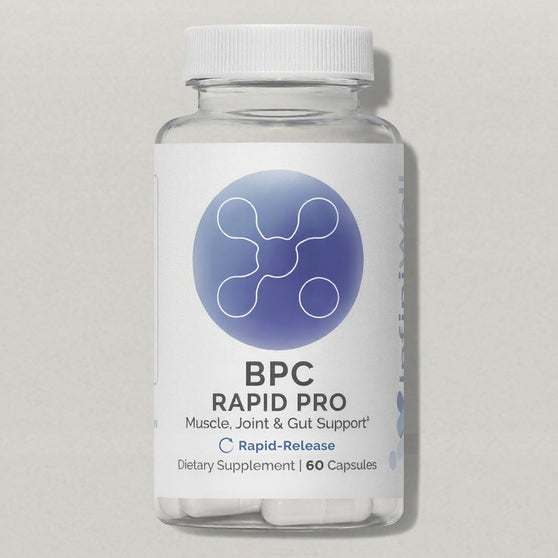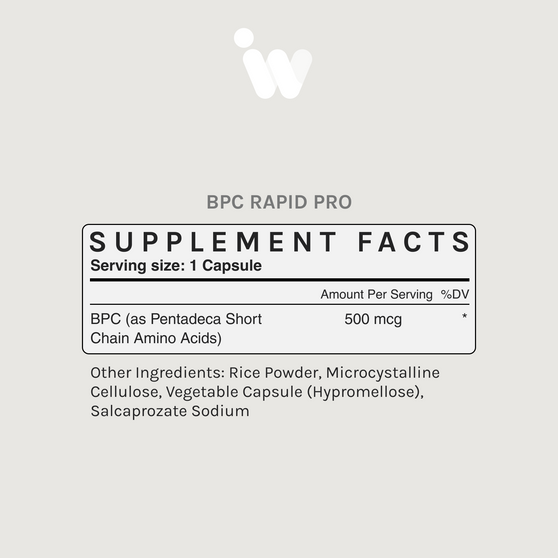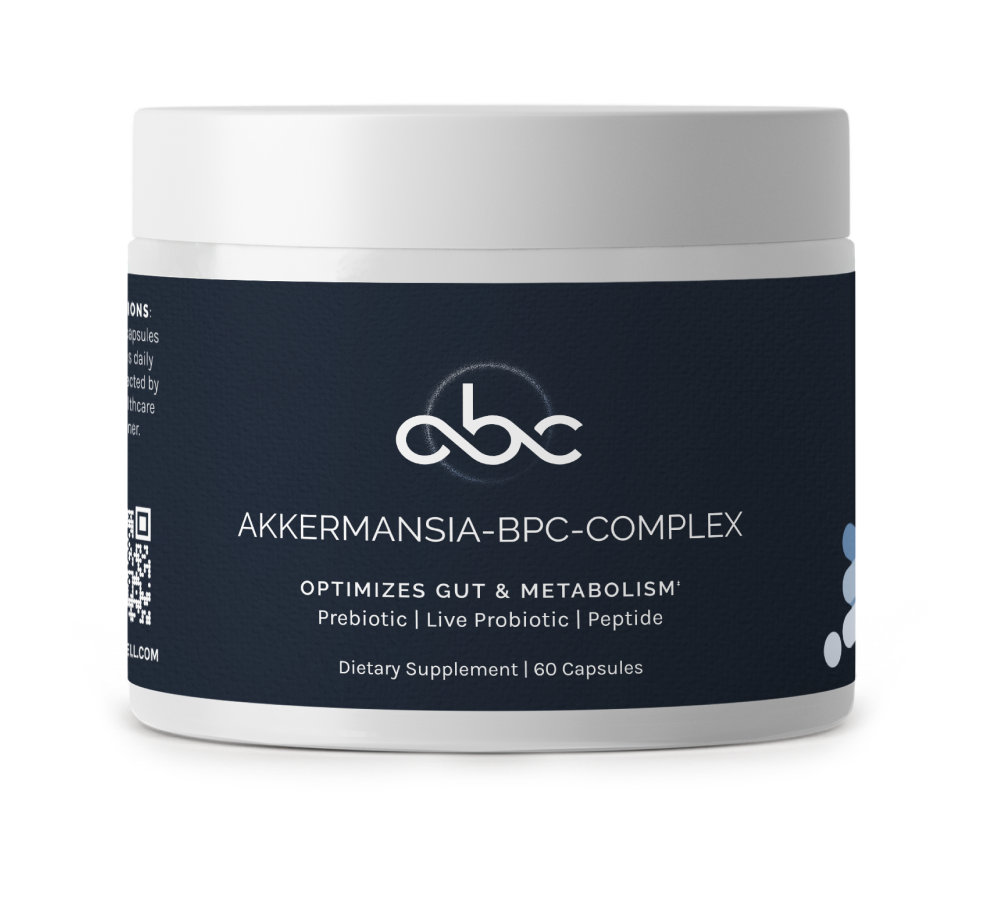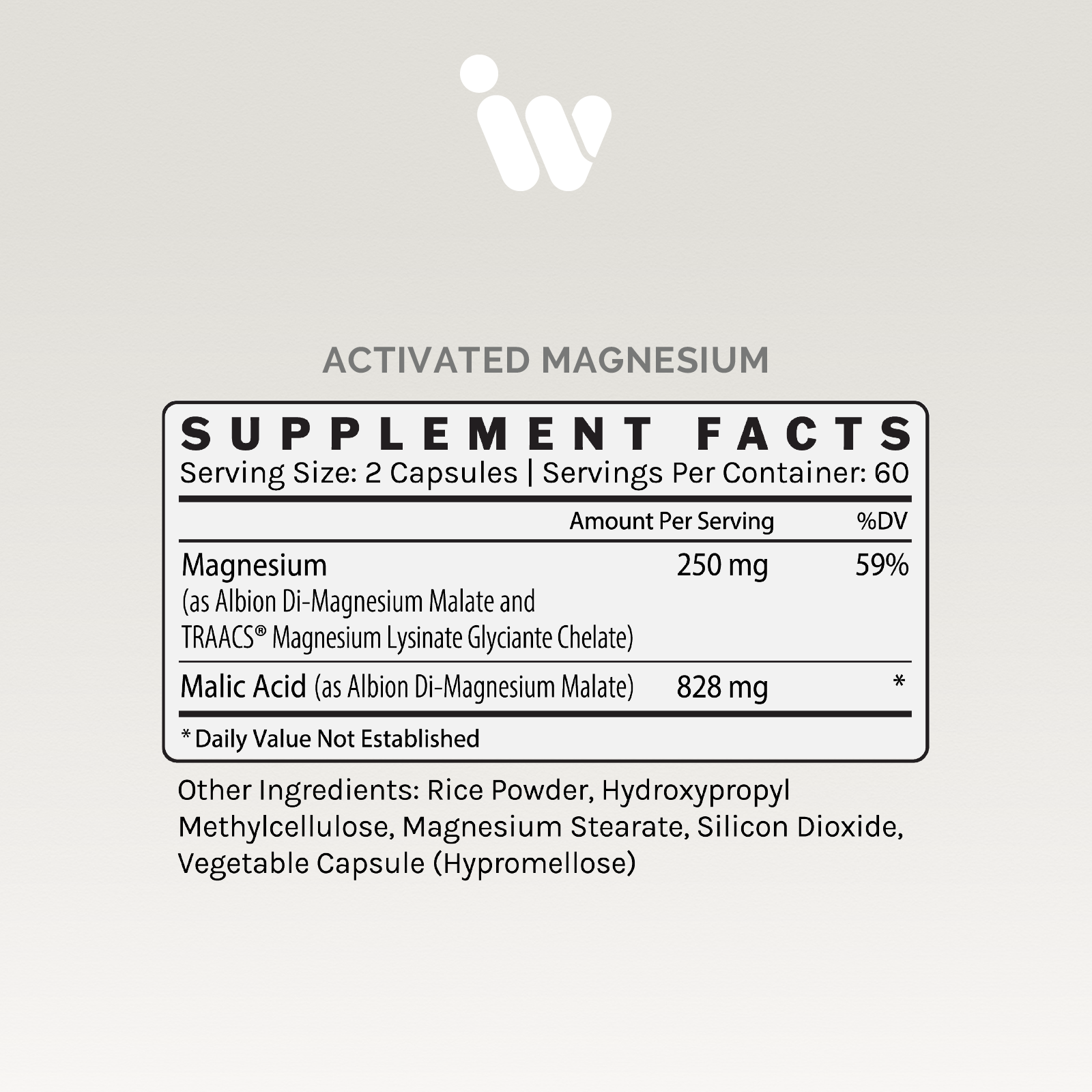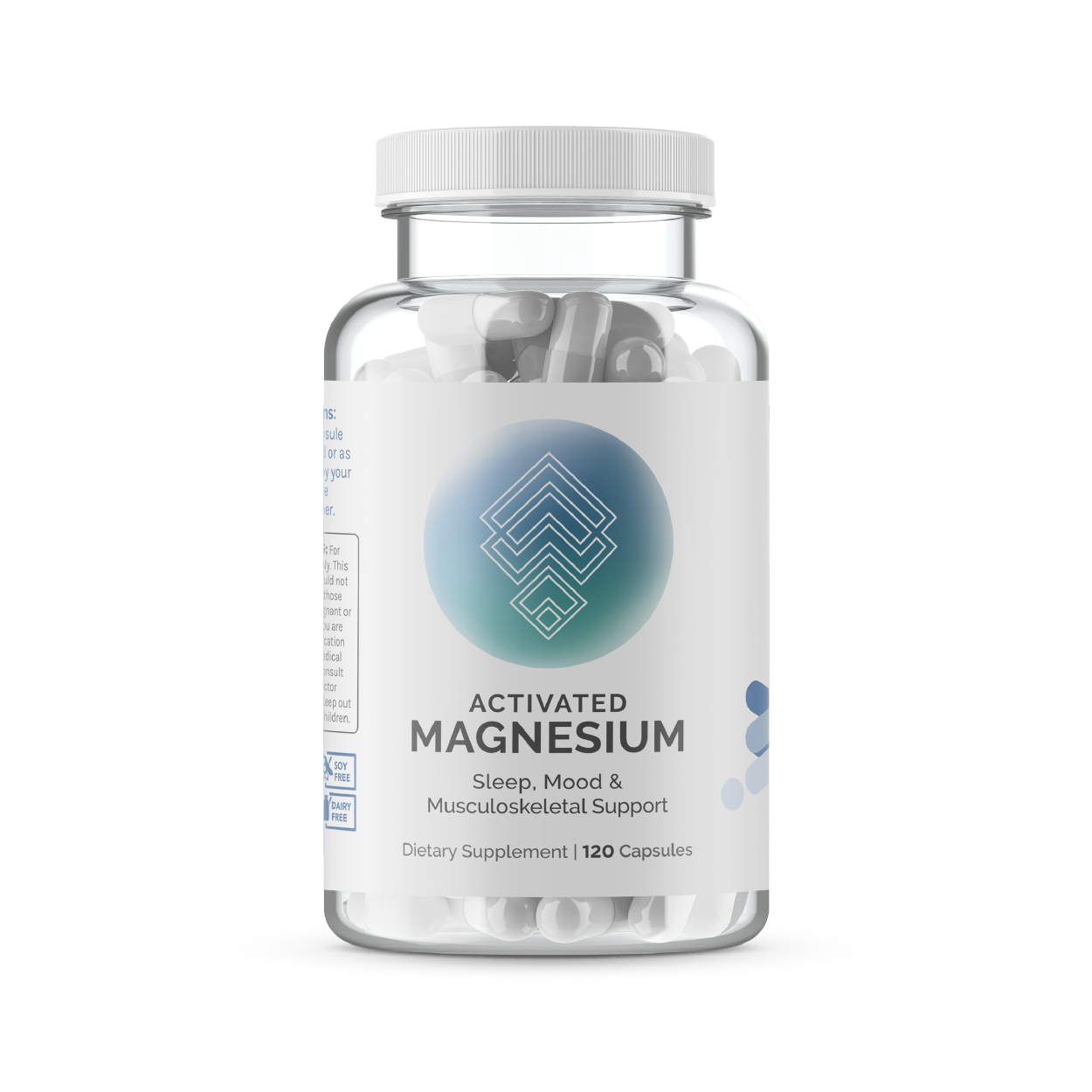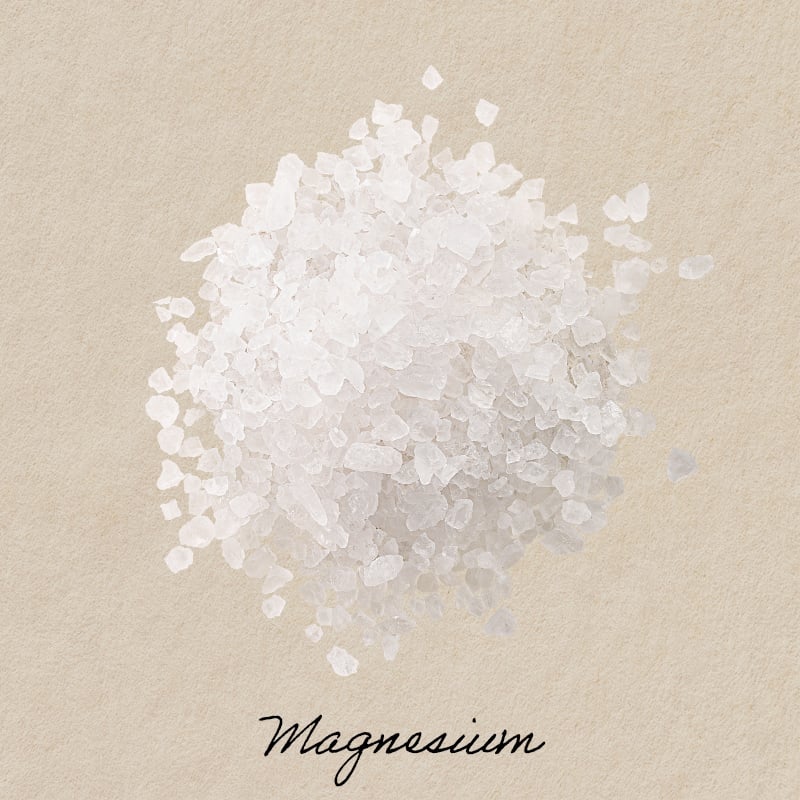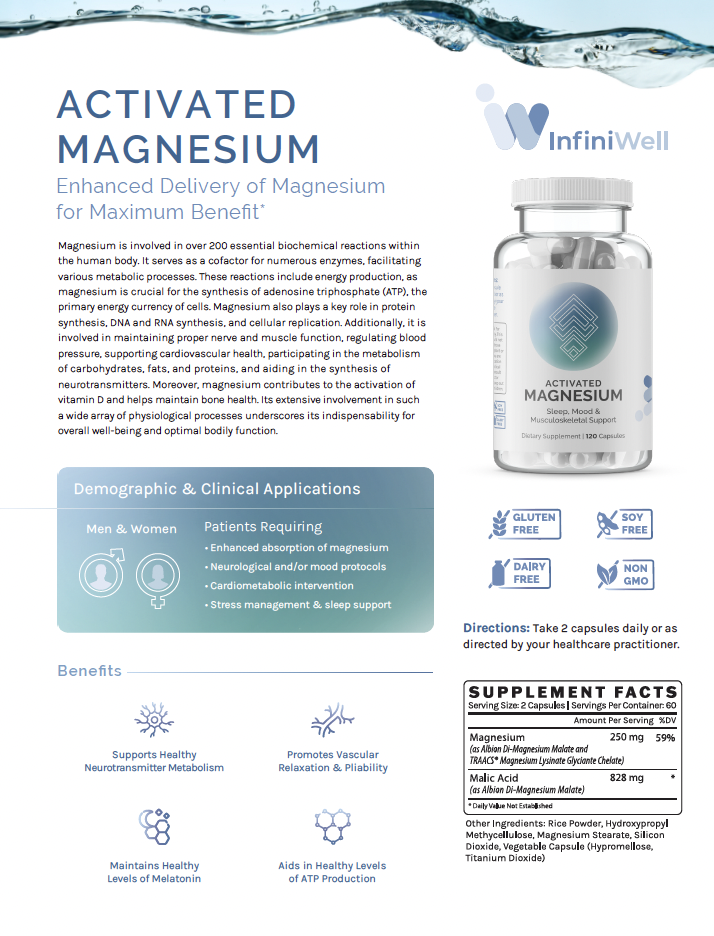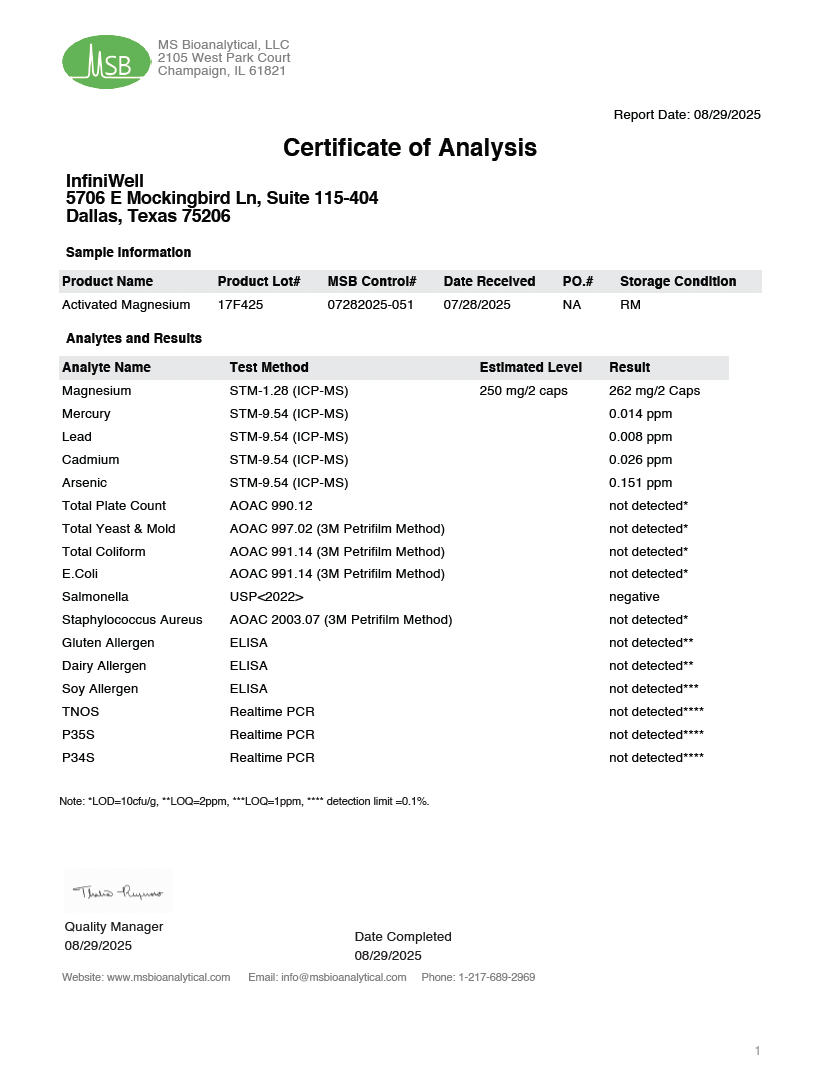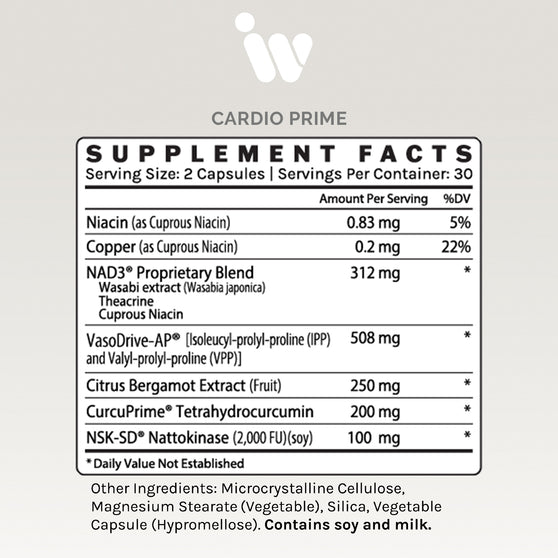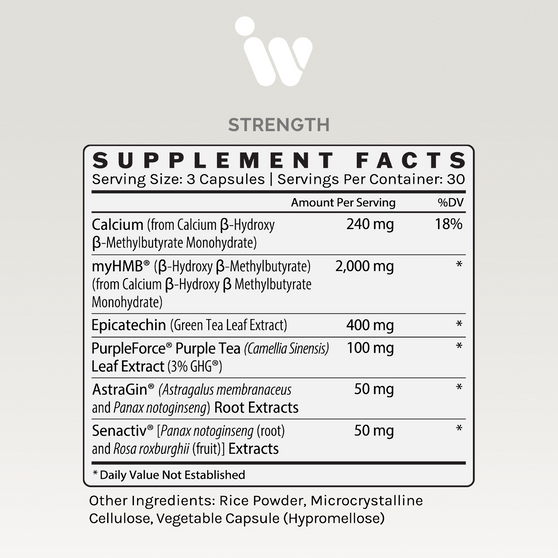MAGNESIO ACTIVADO
Sleep, Mood & Musculoskeletal Support*
- Supports Healthy Neurotransmitter Metabolism
- Promotes Vascular Relaxation & Pliability
- Maintains Healthy Levels of Melatonin
- Aids in Healthy Levels of ATP Production
Active Ingredients: Magnesium, Malic Acid
Other Ingredients: Rice Powder, Hydroxypropyl Methycellulose, Magnesium Stearate, Silicon Dioxide, Vegetable Capsule (Hypromellose, Titanium Dioxide)
Take 2 capsules daily or as directed by your healthcare provider
Daily
2 Capsules
-
Benefits
- Supports Healthy Neurotransmitter Metabolism
- Promotes Vascular Relaxation & Pliability
- Maintains Healthy Levels of Melatonin
- Aids in Healthy Levels of ATP Production
-
Ingredients
Active Ingredients: Magnesium, Malic Acid
Other Ingredients: Rice Powder, Hydroxypropyl Methycellulose, Magnesium Stearate, Silicon Dioxide, Vegetable Capsule (Hypromellose, Titanium Dioxide)
-
How To Use
HOW
Take 2 capsules daily or as directed by your healthcare provider
WHEN
Daily
DOSE
2 Capsules
MAGNESIO ACTIVADO
Sleep, Mood & Musculoskeletal Support*
-
OVERVIEW
Magnesium is an essential mineral, intricately woven into the fabric of human physiology. It participates in over 200 critical biochemical reactions, highlighting its significance in sustaining life. Among its many roles, magnesium is a cornerstone of energy production, serving as a cofactor in the synthesis of adenosine triphosphate (A TP)—the molecular fuel for every cell. Beyond energy, magnesium plays a fundamental part in building proteins, replicating cells, and synthesizing DNA and RNA. It also supports nerve and muscle function, regulates blood pressure, aids cardiovascular health, and contributes to the metabolism of carbohydrates, fats, and proteins. This mineral even assists in the synthesis of neurotransmitters, activating vitamin D and strengthening bone health. Its involvement in such diverse and vital processes underscores its critical role in maintaining overall well-being.
However, magnesium absorption isn’t always straightforward. Conditions like hypochlorhydria—low stomach acid—can hinder the body’s ability to effectively absorb this nutrient, often as a side effect of gastrointestinal conditions or prolonged use of proton pump inhibitors (PPIs). Stomach acid is essential for breaking magnesium down into its ionic form (Mg²⁺), which is readily absorbed in the small intestine. Without sufficient stomach acid, magnesium absorption falters.
Fortunately, nature offers solutions, such as malic acid, a naturally occurring compound found in fruits and vegetables. Malic acid enhances magnesium absorption, especially for those with reduced stomach acid levels. It works by forming soluble complexes with magnesium ions, making them easier for the body to absorb. In supplements like di-magnesium malate, where magnesium is bound to malic acid, this combination not only improves magnesium’s bioavailability but also supports energy production and muscle function, helping to overcome the challenges of hypochlorhydria.1
-
BRAIN HEALTH
Magnesium’s importance extends to neurological health, where it supports critical brain functions. It influences neurotransmitter activity, aiding the release of serotonin, dopamine, and GABA—chemicals essential for regulating mood, memory, and overall brain health. Acting as a cofactor for enzymes, magnesium helps synthesize and regulate these neurotransmitters, ensuring their availability when needed. Additionally, magnesium supports synaptic plasticity—the ability of synapses to adapt and respond during learning and memory processes. By modulating NMDA receptor activity, magnesium plays a pivotal role in enhancing brain flexibility and long-term memory formation.2
-
CARDIOVASCULAR SUPPORT
The cardiovascular system also depends on magnesium. It is a key regulator of heart rhythm, ensuring electrical impulses coordinate the contraction and relaxation of heart muscles. Magnesium further facilitates the proper functioning of ion channels and pumps in cardiac cells. Its contributions to cardiovascular health extend to blood pressure regulation, where magnesium relaxes and dilates blood vessels, promoting healthy circulation. By influencing endothelial cell activity, it helps maintain vascular tone, keeping the cardiovascular system functioning smoothly.3,4
-
STRESS AND SLEEP ASSISTANCE
Sleep, often considered a cornerstone of health, is another area where magnesium shines. Known for its calming effects, magnesium supports the production and regulation of melatonin—the hormone responsible for governing the sleep-wake cycle. By boosting melatonin synthesis, magnesium promotes better sleep quality and a consistent sleep pattern. Its muscle-relaxing properties further enhance restful sleep, easing tension throughout the body and fostering a deeper, more rejuvenating rest.5,6
-
REFERENCES
1. Citation: Slutsky, I., & Wurtman, R. J. (2018). American Journal of Clinical Nutrition, 108(1), 166-171.
2. Slutsky, I., & Wurtman, R. J. (2018). American Journal of Clinical Nutrition, 108(1), 166-171.
3. Sontag, T. J., & Parker, R. S. (2016).Magnesium Research, 29(3), 101-111.
4. Houston, M. (2011). Journal of Clinical Hypertension, 13(11), 843-847.
5. Abbasi, B., Kimiagar, M., Sadeghniiat, K., Shirazi, M. M., Hedayati, M., & Rashidkhani, B. (2012). TJournal of Research in Medical Sciences, 17(12), 1161-1169.
6. Hornyak, M., Voderholzer, U., Hohagen, F., Berger, M., & Riemann, D. (1998). Sleep, 21(5), 501-505.
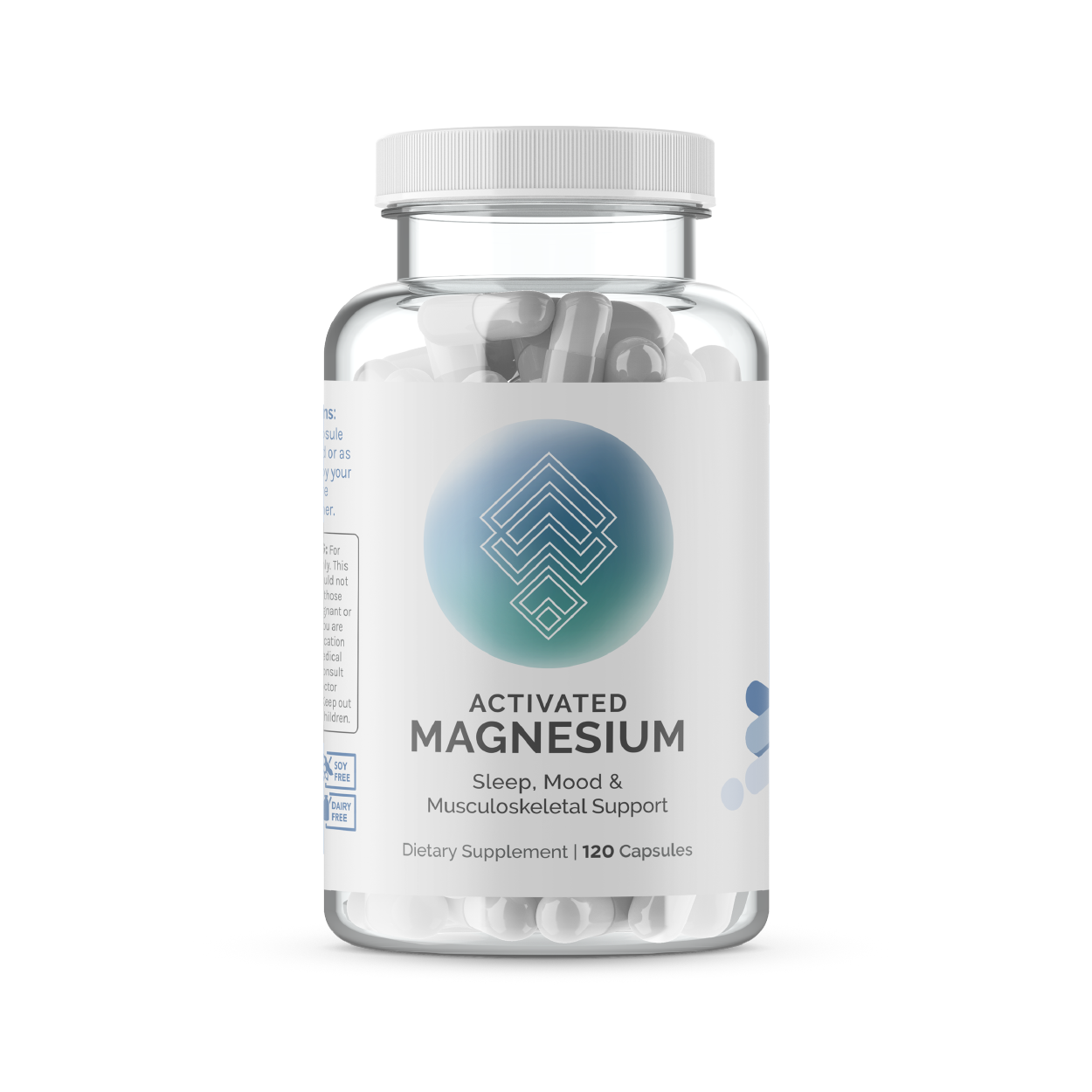
| Ingredients | Amount Per Serving |
| Magnesium (as Albion Di-Magnesium Malate and TRAACS® Magnesium Lysinate Glyciante Chelate) | 250 mg |
| Malic Acid (as Albion Di-Magnesium Malate) | 829 mg |
Other Ingredients: Microcrystalline Cellulose, Magnesium Stearate, Silicon Dioxide, Vegetable Capsule (Hypromellose)
Professional Information
People Requiring:
-
Magnesium Absorption Support
-
Neurological and/or Mood Protocols
-
Cardiometabolic Intervention
-
Stress Management & Sleep Support
Activated Magnesium, Natural Energy Supplement: FAQs
Have more questions? We have answers
InfiniCare—your personal concierge for longevity. Our team of experts, including our on-staff physician, are standing by to ensure world-class service.
Our team is located in Dallas, TX, USA
-
What is activated magnesium?
Activated magnesium is a type of magnesium supplement formulated with co-factors—such as malic acid—to support absorption and energy metabolism.Magnesium helps convert food into energy and supports more than 300 enzymatic reactions (chemical processes that help the body function), including those needed to produce adenosine triphosphate (ATP), the molecule that stores and delivers energy in the body.
By including absorption-friendly compounds like malic acid, activated magnesium helps the body absorb and use magnesium more effectively where it’s needed most. -
What is InfiniWell's Activated Magnesium?
InfiniWell’s Activated Magnesium is a magnesium-based dietary supplement formulated with malic acid to support energy metabolism, restful sleep, and muscle function. This combination helps the body produce ATP—its main energy source—while supporting neurotransmitter activity, vascular flexibility, and melatonin regulation.Activated Magnesium is for anyone looking to support energy, manage occasional fatigue, and maintain daily rhythm. -
Is Activated Magnesium an energy supplement?
Yes. Activated Magnesium can be considered a natural energy supplement. It helps the body produce energy at the cellular level by supporting ATP synthesis—the process that generates the molecule responsible for storing and delivering energy. When combined with malic acid, it fuels the Krebs cycle—a key part of energy metabolism—helping promote sustained energy throughout the day.It’s a practical option for those seeking supplements for energy without relying on stimulants. -
Can Activated Magnesium support physical performance?
Yes. Magnesium helps the body produce energy, transport oxygen, and maintain proper muscle function. Athletes or active individuals may benefit from this supplement, especially as energy needs rise during exercise or training. -
Is Activated Magnesium good for sleep?
Yes. Magnesium supports healthy melatonin levels, which help regulate the body’s natural sleep-wake cycle. By promoting nervous system balance and vascular relaxation, Activated Magnesium by InfiniWell helps support better sleep and may lead to more restful nights over time, especially with consistent use. -
How does Activated Magnesium benefit muscle and bone health?
Magnesium supports muscle mass maintenance, bone health, and protein synthesis. It helps reduce muscle tension, promotes neuromuscular signaling (communication between nerves and muscles), and may be especially helpful for active individuals or anyone feeling fatigued after exercise. -
Can Activated Magnesium support mental performance?
Yes. Magnesium supports synaptic plasticity—the brain's ability to adapt and form new connections—and helps regulate neurotransmitters involved in focus, mood, and overall mental health. It may help reduce feelings of occasional fatigue and support mental clarity, especially when paired with a healthy diet that includes key vitamins for brain and mood support, such as B12, D, and pantothenic acid. -
What are the benefits of magnesium with malic acid?
Malic acid works synergistically with magnesium to support ATP production and energy metabolism. It helps magnesium convert carbohydrates, fats, and proteins into energy. -
Who should consider taking Activated Magnesium?
Activated Magnesium may be beneficial for adults with low energy, poor sleep, or occasional muscle tension. It's also a good fit for those with demanding schedules, active lifestyles, or diets low in essential nutrients. -
Is Activated Magnesium safe for daily use?
Yes, when taken as directed. InfiniWell’s formula is intended for the general population and contains no harsh additives. However, always consult your healthcare provider before taking supplements—especially if you’re on prescription drugs, have a health condition, or are already taking high amounts of vitamins or minerals. -
How do I take InfiniWell Activated Magnesium?
Take 2 capsules daily, with or without food. You can include Activated Magnesium in your morning or evening routine—whichever works best for you. Follow your healthcare provider’s guidance if they suggest a different amount. -
When is the best time to take Activated Magnesium?
You can take it at any time of day. For sleep support, some prefer to take it in the evening. For general energy and well-being, morning or midday may be more appropriate—especially if taken alongside other energy vitamins, such as B vitamins or vitamin C. -
What other nutrients support energy levels?
A balanced diet that includes vitamin D (also known as the sunshine vitamin), vitamin C, vitamin E, B vitamins, and iron is essential for energy metabolism and oxygen transport. Many people also pair magnesium with iron supplements, as both contribute to red blood cell health and energy levels. -
How does magnesium interact with other supplements?
Magnesium works well alongside nutrients that support energy, such as B-complex vitamins, vitamin D, and ashwagandha supplements. However, taking multiple supplements with similar effects should be discussed with your healthcare provider to avoid unintended interactions, especially with over-the-counter or prescription drugs. -
How do I know if my magnesium levels are low?
Common signs of low magnesium include fatigue, poor sleep, muscle cramps, and irritability. Keep in mind that symptoms can be subtle or overlap with other health concerns. A simple blood test may help determine whether supplementation is appropriate. Iron deficiency, inadequate intake of certain vitamins, or chronic stress can also compound these effects. -
What should I know about magnesium absorption?
Magnesium absorption may be affected by factors such as age, diet, and certain medications. Activated forms with co-factors like malic acid or citrate tend to have better bioavailability than magnesium oxide (a common form of magnesium that's less easily absorbed). -
What should I look for when buying magnesium supplements?
When choosing a magnesium supplement, consider the following to ensure quality and safety:- GMP-certified manufacturing: Look for supplements produced in facilities that follow Good Manufacturing Practices (GMP). This ensures consistent quality, accurate labeling, and proper handling during production.
- Contaminant testing: Choose products that are tested for heavy metals, such as lead, arsenic, cadmium, and mercury. Third-party testing adds another layer of assurance that the product is safe for long-term use.
- Transparent labeling: A high-quality supplement will clearly list all active and inactive ingredients, including the specific form of magnesium (e.g., citrate, malate) and any co-factors used for absorption.
- Formulation considerations: Activated forms—those paired with compounds like malic acid—are often easier for the body to absorb and more effective for energy metabolism and muscle support.
-
Can I take Activated Magnesium with iron or vitamin C?
Yes, but it’s best to space them apart. Magnesium may interfere with the absorption of iron, so avoid taking both at the exact same time. Vitamin C, on the other hand, supports iron absorption and may be taken with iron-rich foods or supplements. -
Glossary
Terms to know:- Activated magnesium: A form of magnesium combined with ingredients like malic acid to support absorption and energy metabolism.
- Adenosine triphosphate (ATP): The body’s main energy molecule, produced in cells through mitochondrial activity.
- Co-factors: Compounds that help enzymes carry out chemical reactions, often improving nutrient function and absorption.
- Dietary supplements: Products taken orally to support nutritional intake and physiological function.
- Enzymatic reactions: Chemical processes that support essential functions like energy production, digestion, and detoxification.
- Energy metabolism: The body’s process of generating energy from nutrients through biochemical pathways like the Krebs cycle.
- Krebs cycle: A central part of cellular energy production that breaks down nutrients to generate ATP.
- Magnesium ions: Electrically charged particles that support nerve conduction, muscle relaxation, and energy generation.
- Malic acid: An organic compound that supports ATP production and muscle function.
- Mental fatigue: A decline in cognitive function often associated with low energy, nutrient deficiencies, or sleep deprivation.
- Red blood cells: Cells that transport oxygen throughout the body, supported by iron and B vitamins.
- Sleep quality: A measure of restful, restorative sleep, often influenced by melatonin levels and nervous system balance.



